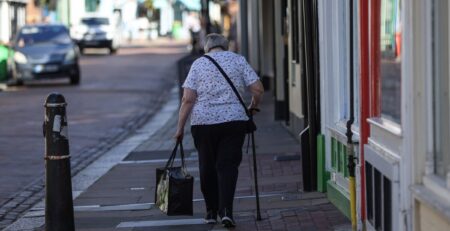UK. Women would have to work 40 years longer to close the gap.
Mothers face more insecure and lower-paid work after having children, official figures suggest.
Women with dependent children are seven times more likely to work part-time than men, according to the Office for National Statistics (ONS).
More than 15% of mums also say they are economically inactive because of caring responsibilities, versus 1.9% of dads.
One analyst said “millions of mums” were being forced to “pay the price” of a less secure career.
The new research found that while mums who are employed were more likely to work part-time, only 25% of mothers with a one-year-old worked full-time.
More than nine in 10 of the women in part-time work surveyed by the ONS said that they did not want a full-time job.
But Sarah Coles, personal finance analyst at Hargreaves Lansdown, said that there was a clear financial cost associated with the decision to work part-time or take a career break.
“This doesn’t just take a toll during the early years with young children, but throughout the rest of their working life,” she said.
“Not only do they receive lower pay, but later in life, if someone needs to stop work to look after someone else in the family – such as grandchildren or elderly parents – the job typically falls to the lower-earning mum.”
The new figures from the ONS found that employment among mothers fluctuates as children get older and peaks at the age of 15 at 82.1%, before falling back again.
Pensions pay gap
“This insecurity feeds into women’s ability and willingness to put money aside for the long term. It’s one reason why women overwhelmingly favour cash Isas and men are more likely to put money into a stocks-and-shares Isa or a pension,” Ms Coles added.
Separate research published on Monday by Scottish Widows has found that the average woman in her 20s today will retire with £100,000 less in her pension than her male peers.
Read more @News Yahoo
309 views










